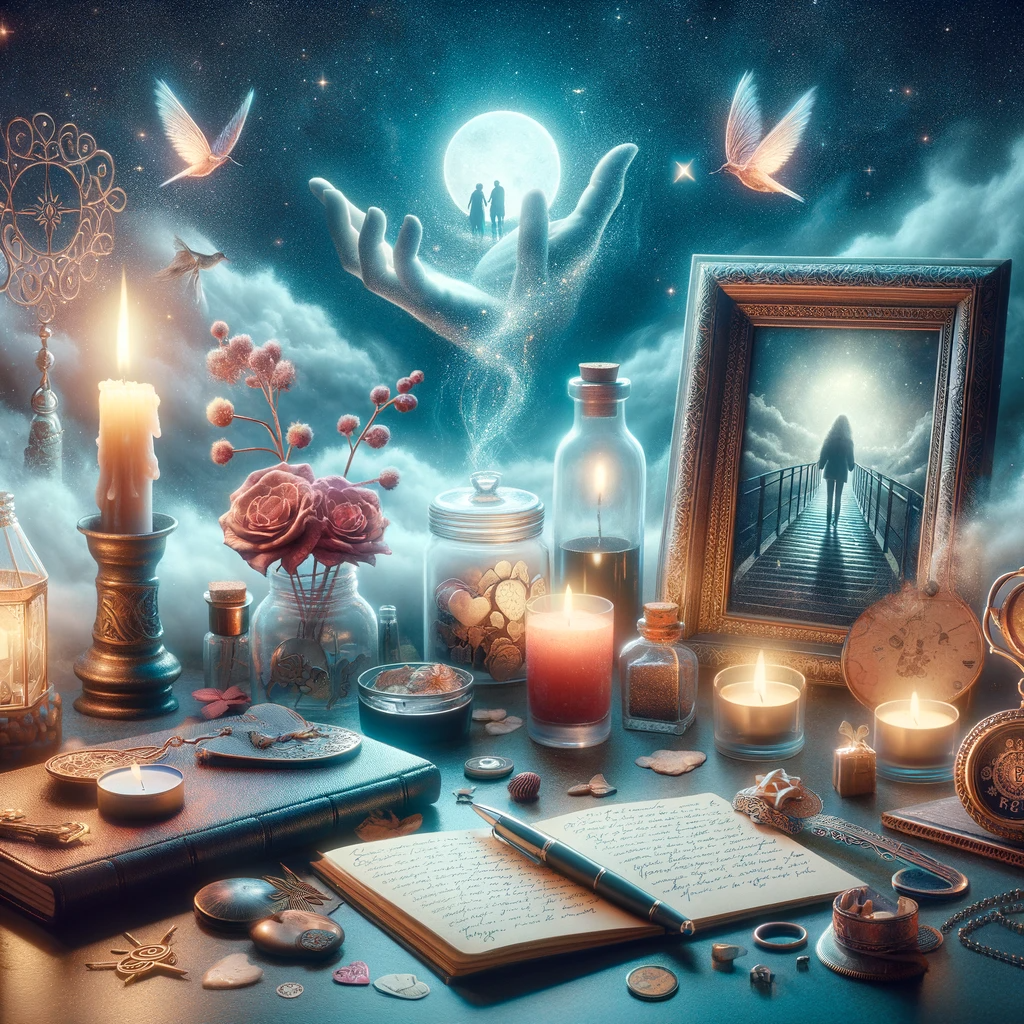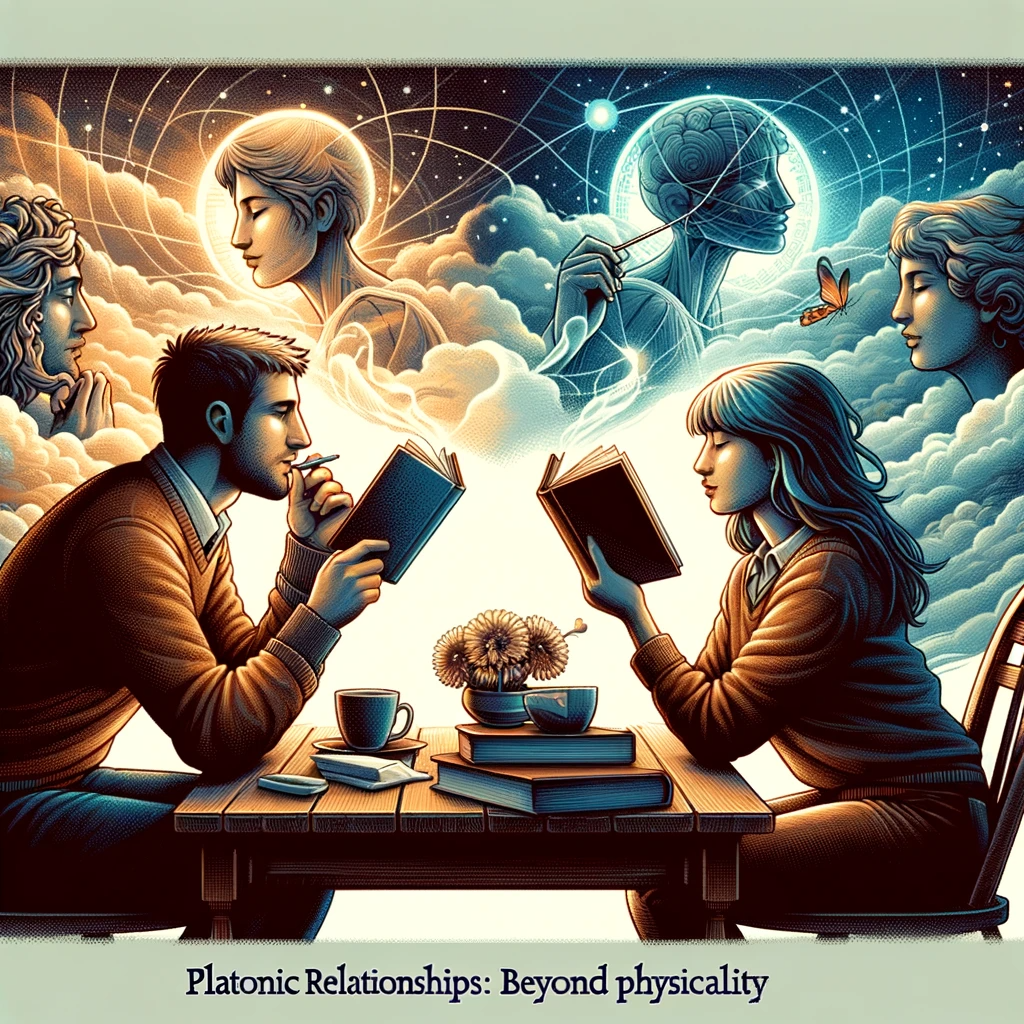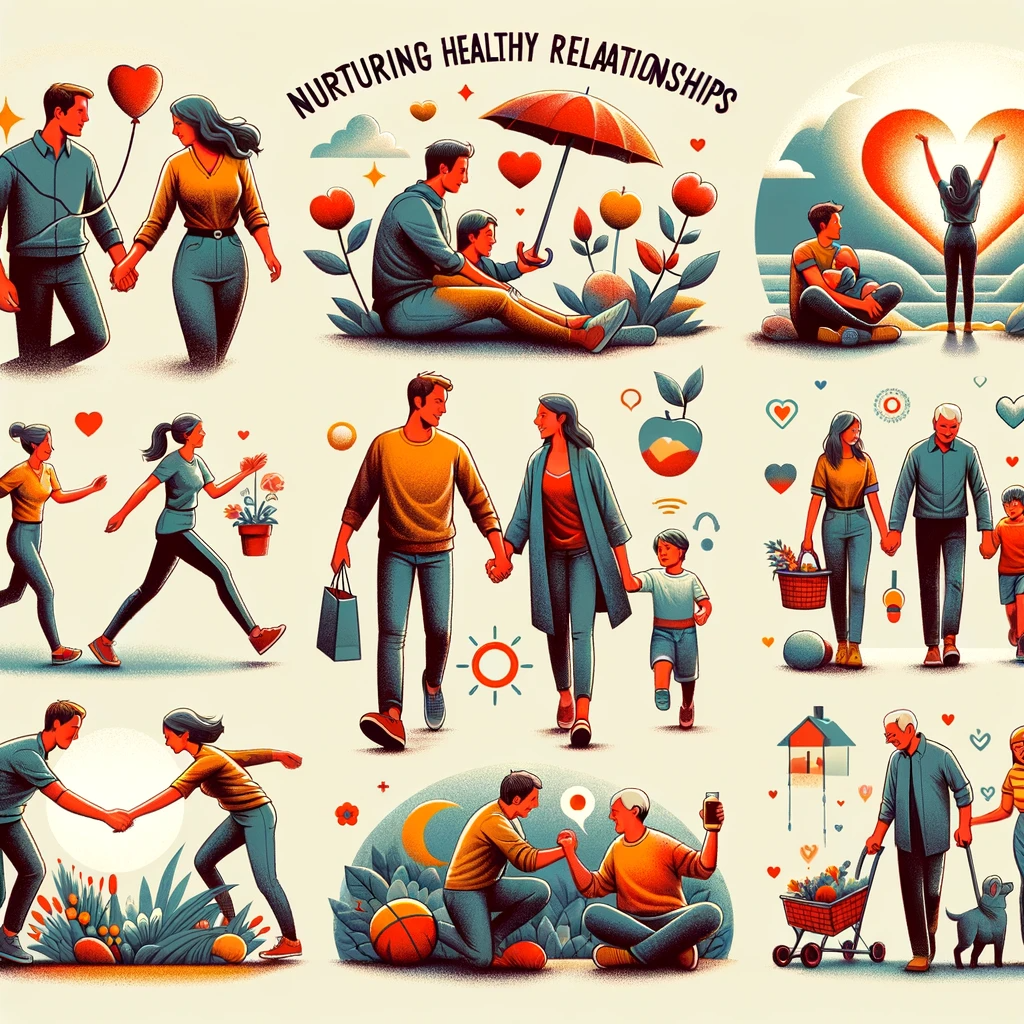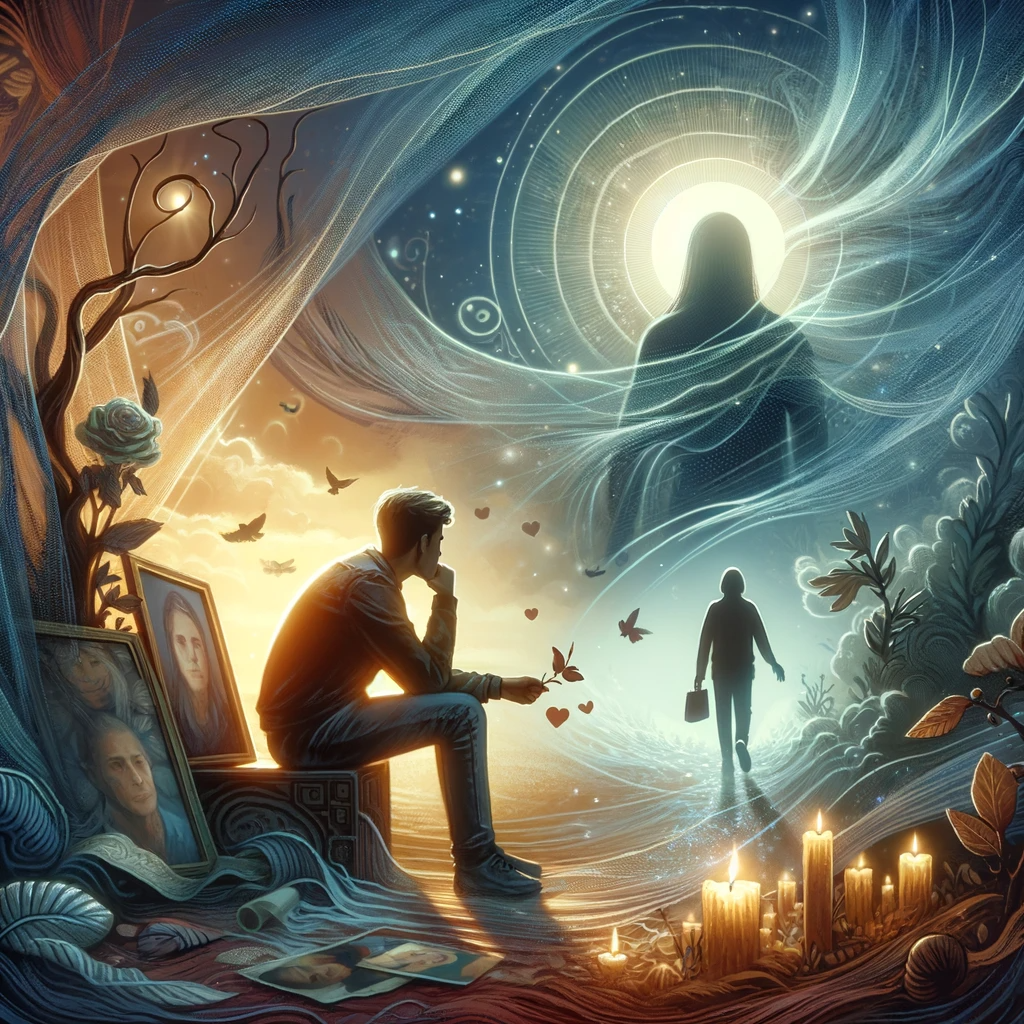Grieving the Loss of a Friend: Understanding the Intricacies of Love and Friendship
Explore the complexities of grieving a friend's loss, blending the nuances of love and friendship. Understand the emotional journey, the impact of deep connections, and the healing process in navigating this unique grief, underlining the significance of both love and friendship.

The deep pain that is felt at the death of every friendly soul arises from the feeling that there is in every individual something which is inexpressible, peculiar to him alone, and is, therefore, absolutely and irretrievably lost.
Arthur Schopenhauer, German philosopher
Grieving the Loss of a Friend: Understanding the Intricacies of Love and Friendship
The concepts of love and friendship have been explored and celebrated throughout human history, with literature, art, and cinema often delving into their complexities. From the nuanced portrayals in Jane Austen adaptations, such as "Lady Susan" featuring Kate Beckinsale, to modern-day cinematic presentations, the exploration of different kinds of relationships, including romantic relationships, platonic love, and friendship love, continues to intrigue and enlighten us.
The Spectrum of Human Connections: Exploring Love and Friendship
Human connections, in their myriad forms, encompass a range of emotions and interactions, each significant in its way. From the passionate depths of romantic love to the comforting embrace of platonic relationships, these connections shape our experiences and perceptions of the world.
Romantic Love: A Fusion of Emotion and Physicality
Romantic love, a central theme in many literary and cinematic works including the Jane Austen adaptation "Lady Susan," represents a complex blend of emotional and physical intimacy. This type of love, portrayed by actors like Kate Beckinsale and Xavier Samuel in the delightful period drama directed by Whit Stillman, embodies both the emotional depth and physical attraction that characterizes romantic relationships.
In "Lady Susan," characters like Lady Susan Vernon, played by Beckinsale, and Sir James Martin, brought to life by Tom Bennett, navigate the intricate web of romantic feelings and societal expectations. These narratives often mirror real-life complexities where romantic partners seek meaningful connections that go beyond mere physical attraction, seeking a partner with whom they can share life's joys and challenges.

Platonic Relationships: Beyond Physicality
Platonic relationships, as valued by the ancient Greeks, represent a form of love that is devoid of physical intimacy but rich in emotional and intellectual connection. This type of relationship is based on a deep understanding, mutual respect, and a shared sense of values and interests. Platonic love can often be found in close friendships, where best friends provide unconditional support and companionship. These relationships are essential for our well-being, offering a different kind of intimacy and emotional fulfillment.
The Role of Self-Esteem in Relationships
Self-esteem plays a critical role in how we form and maintain both romantic and platonic relationships. People with higher self-esteem are more likely to engage in healthy, supportive relationships. They are better equipped to communicate their needs and feelings, and they are more resilient in the face of relationship challenges. This self-assurance also influences the way individuals identify and respond to potential romantic partners or friends.
The Intersection of Love and Friendship
At times, the line between friendship love and romantic love can blur, leading to confusion and conflict. This is often portrayed in period dramas and contemporary films alike, where characters grapple with evolving feelings for a friend. The transition from a platonic to a romantic relationship is a delicate process, requiring careful navigation of emotions and mutual understanding.
Love in the Eyes of the Ancient Greeks
The ancient Greeks had a profound understanding of love's different forms. They identified several types of love, including erotic love, which involves physical and sexual attraction, and agape, or unconditional love, often found among family members or in deeply committed friendships. This classification helps us understand the wide spectrum of human emotions and relationships.
The Influence of Art and Cinema
Art and cinema, especially period dramas with their meticulous costume design and detailed storytelling, play a significant role in exploring and depicting the complexities of human relationships. Films and adaptations provide a window into the nuanced dynamics of love and friendship, offering viewers a chance to reflect on their relationships and experiences.

Nurturing Healthy Relationships
Maintaining healthy relationships, whether romantic or platonic, requires effort, understanding, and a willingness to grow and adapt. It involves recognizing and respecting each other's needs, providing emotional support, and enjoying shared experiences and fun. In any relationship, the ability to feel safe and supported is paramount.
Embracing the Diversity of Connections
The spectrum of human connections, from romantic love to platonic friendships, forms the tapestry of our social world. Each type of relationship offers unique benefits and challenges, contributing to our overall happiness and sense of belonging. By understanding and embracing the diversity of these connections, we can enrich our lives and the lives of those around us, creating a world where every form of love and friendship is valued and celebrated.
Love and Friendship in Austen's World
In the world of Jane Austen, love and friendship often intertwine in complex ways. Characters like Lady Susan Vernon and the young man Xavier Samuel portray in the thoroughly delightful period drama "Lady Susan" illustrate this complexity. Austen's work often explores how romantic feelings can evolve from or exist alongside deep friendships, highlighting the fine line between different kinds of relationships. Her characters navigate the turbulent waters of social expectations, personal desires, and the intrinsic need for meaningful connections.
The Impact of Losing a Friend
The loss of a friend, whether through a falling out or more tragic circumstances, can be as devastating as the end of a romantic relationship. Research shows that our friends, much like family members, play a crucial role in our happiness and well-being. They are the ones we turn to for support, fun, and a sense of belonging. The grieving process for a lost friendship involves not just mourning the person but also the shared experiences and the unique understanding that the friendship provided.
Navigating the Complexities of Friendship and Romantic Love
The intersection of friendship and romantic love can sometimes lead to confusion and conflict. For instance, the transition from a platonic to a romantic relationship, as seen in various period dramas and modern romantic stories, is often fraught with emotional turbulence. This transition can bring about a shift in dynamics, where feelings of unconditional love and support in a friendship might evolve into something more akin to erotic love or romantic partnership.
The Role of Self-Esteem and Social Support
Self-esteem plays a significant role in how we form and maintain relationships. People with higher self-esteem are more likely to engage in healthy relationships and experience less conflict. The support we receive from friends, romantic partners, and family members greatly influences our ability to navigate life's challenges. A strong support system, comprising different kinds of relationships, provides a safety net, allowing individuals to feel safe and secure.

Grieving and Healing
Grieving the loss of a friend is a process that involves acknowledging the pain, understanding the emotions involved, and eventually finding a way to heal. It's important to recognize that each person grieves in their own way and in their own time. Some may find solace in the memories and the lessons learned from the friendship, while others might seek support from other friends or family members.
The Role of Art and Cinema in Exploring Relationships
Cinema, particularly period dramas like those adapted from Jane Austen's novels, and other art forms play a crucial role in exploring and depicting the nuances of human relationships. Costume design, for example, in period dramas, adds a layer of authenticity and helps viewers connect with the characters and their emotions. Directors like Whit Stillman and actors like Kate Beckinsale and Tom Bennett bring these characters to life, allowing audiences to reflect on their own experiences and relationships.
Embracing the Complexity of Human Relationships
The loss of a friend is a profound experience that reflects the complex nature of human relationships. Whether it's the platonic love celebrated by the ancient Greeks, the romantic entanglements of Jane Austen's characters, or the unconditional love found in close relationships, each form of connection holds significant value in our lives. As we navigate through different kinds of relationships – be it with friends, romantic partners, or family members – it's important to cherish these bonds, learn from them, and grow. The world of relationships is as diverse as it is rich, offering different resources and forms of support. Embracing this diversity helps us understand the depth of our emotions and the breadth of human experience.
Introducing the Grief Recovery Room on Caregiver Relief
In the journey of grief and healing, finding a space to remember and honor loved ones is invaluable. Recognizing this need, Caregiver Relief has introduced the Grief Recovery Room, a compassionate and supportive online platform designed to help individuals in their mourning process.
A Memorial Space for Your Loved One
The Grief Recovery Room allows you to create a personalized memorial page for your loved one. This unique feature offers a dedicated space where you can celebrate the life and memories of those who have passed away. It's more than just a page; it's a sanctuary for remembrance and reflection.
Sharing Stories and Pictures
One of the most therapeutic aspects of the Grief Recovery Room is the ability to share stories and pictures. This platform provides you the opportunity to recount fond memories, anecdotes, and the legacy of your loved one. By sharing photographs and narratives, not only do you keep their memory alive, but you also invite others to partake in the celebration of their life.
Connecting with Family and Friends
Grief can often feel isolating, but the Grief Recovery Room bridges this gap by allowing you to connect with family and friends. Through this platform, you can share your memorial page with others who knew and loved the person you're grieving. It becomes a collective space for sharing, support, and healing.

A Place of Solace
Perhaps most importantly, the Grief Recovery Room is a place you can visit whenever you need to feel close to your loved one. It serves as a digital haven where you can find comfort in memories and feel a continuing bond with the person who has passed away. In moments of longing or reflection, this space provides a sense of closeness and peace.
Conclusion
The Grief Recovery Room on Caregiver Relief is more than just an online platform; it's a heartfelt initiative to help individuals navigate their grief journey. By creating a memorial page, sharing stories and pictures, and connecting with others, you can find a semblance of comfort and a means to honor the cherished memories of your loved one. This room stands as a testament to the enduring power of love and the resilience of the human spirit in the face of loss.
Ready to start sharing …
Share Your Sorrow, Write to Heal
It takes a minute to find a special person, an hour to appreciate them, and a day to love them, but it takes an entire lifetime to forget them.
Author unknown
You might also like this article:





